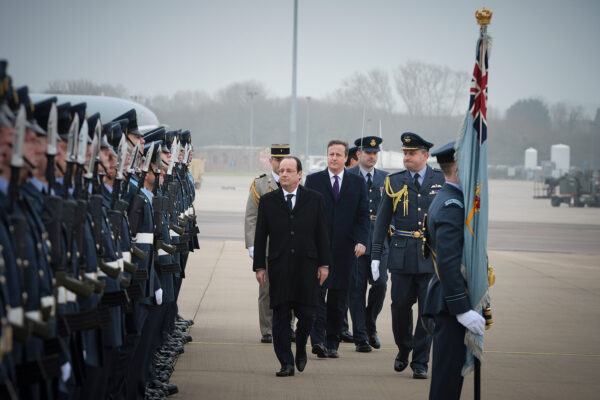
I argued here last year that a European army wasn’t going to happen. Only the French were interested, I wrote. The Germans were ambivalent. The British were against it. “Defense is a national — not an EU — responsibility,” they said at the time, when Jean-Claude Juncker, the president of the European Commission, floated the idea of a defense union.
Now Juncker is back with his proposal and the difference, of course, is that the British are leaving.
The Luxemburger reiterated his support for an EU army in a speech to the European Parliament last week, sending Britain’s Euroskeptic press into a frenzy. “Nigel Farage was right!” roared the Sunday Express. “Got out just in time,” opined The Sun.
It’s easy to dismiss Juncker’s idea as just the latest tone-deaf European federalist scheme that will go nowhere — and this would have been true if the United Kingdom wasn’t on the way out.
Now we have to take this seriously. (Thanks, Brexiteers.)
Who wants a EU army?
Besides the saboteurs of national sovereignty, it are mostly the French who have historically advocated a European defense union separate from NATO.
The reason, as Walter Russell Mead explains in The American Interest, is that such an initiative would offset Germany’s economic and political preponderance in Europe.
In the wake of Brexit, the most important thing going on in EU politics is an attempt to recalibrate the Franco-German relationship, Mead writes.
While the British were in the EU, it was their strategic goal to weaken that partnership to increase their own influence in the group. And to a significant degree, they succeeded. The British were among the main proponents of EU enlargement; Franco-German dominance of a union of 27 member states is much less than in the original six founding members.
Those 27 can be divided more or less into three groups:
- A liberal and outward-looking northern tier stretching from Ireland to the Benelux to Scandinavia to the Baltics;
- An illiberal but nevertheless outward-looking Eastern Europe, centered around Poland; and
- An illiberal and inward-looking south, running from Spain to Italy to Greece.
In this situation, Germany has a structural advantage, according to Mead; France in terms of both interests and outlook is closest to the Mediterranean states, so Germany has more allies on most questions that set the statist south against the outward-looking east and north.
Britain’s exit and Poland’s illiberal turn are changing those dynamics. The European north is losing influence (if not necessarily its preponderance). The south, which wants economic relief without having to enact further structural reforms, is trying to figure out how to work the new political math to its advantage.
To that end, Greek prime minister Alexis Tsipras hosted a mini-summit in Athens earlier this month with his counterparts from Cyprus, France, Italy, Malta and Portugal. It’s no coincidence that, with the exception of Cyprus’ Nicos Anastasiades, those leaders all belong to the same European socialist family. (Spain’s right-wing caretaker prime minister, Mariano Rajoy, did not show up.)
France, which is likely to elect a conservative to replace François Hollande next year, doesn’t just want to lead a Mediterranean bloc, though; it wants to leverage it in order to put itself on an equal footing with Germany.
Or, as Mead puts it, “France wants to be the co-head of the EU, not the head of a faction within it.”
Opening up a defense dossier in the EU may be the way to accomplish that.
It increases French prestige in Europe and elsewhere. It plays to a French strength and a German weakness — the Germans do not really want much defense responsibility, especially if that came at the price of a lot more defense spending. It opens the door to fiscal relief by the back door — France could reasonably push the case that its burden of defense spending in the common EU interest should give it some more budgetary room — its defense spending, in other words, should at least be partly exempted from eurozone budget rules. And, by supporting the French arms and high-tech industry, the European defense initiative boosts the French economy.
This doesn’t look good from the American perspective, as Mead knows. A French-led defense union would act more independently from Washington, which is one of the reasons the United States wanted Britain to join the EU in the first place.
